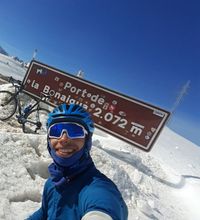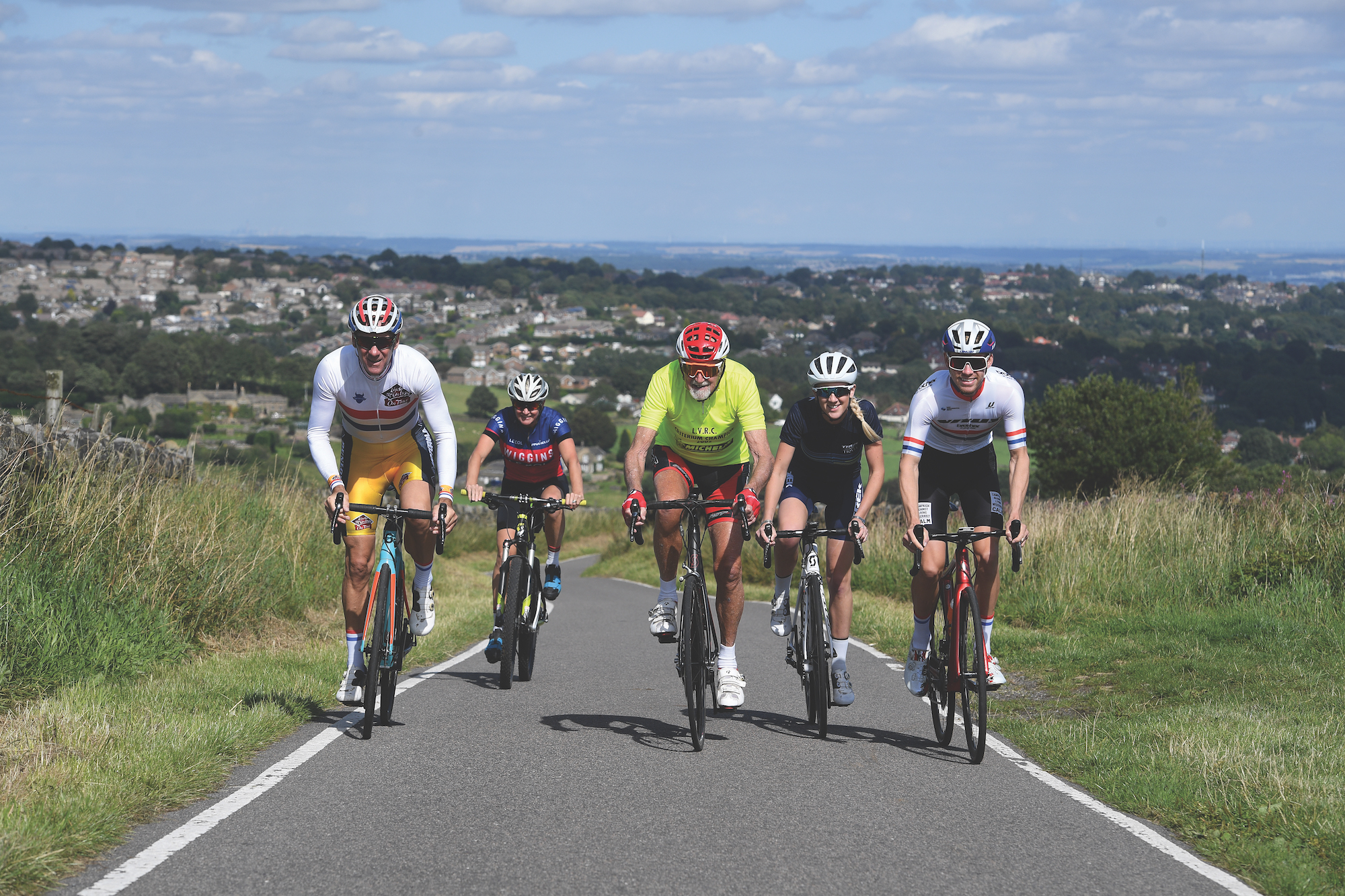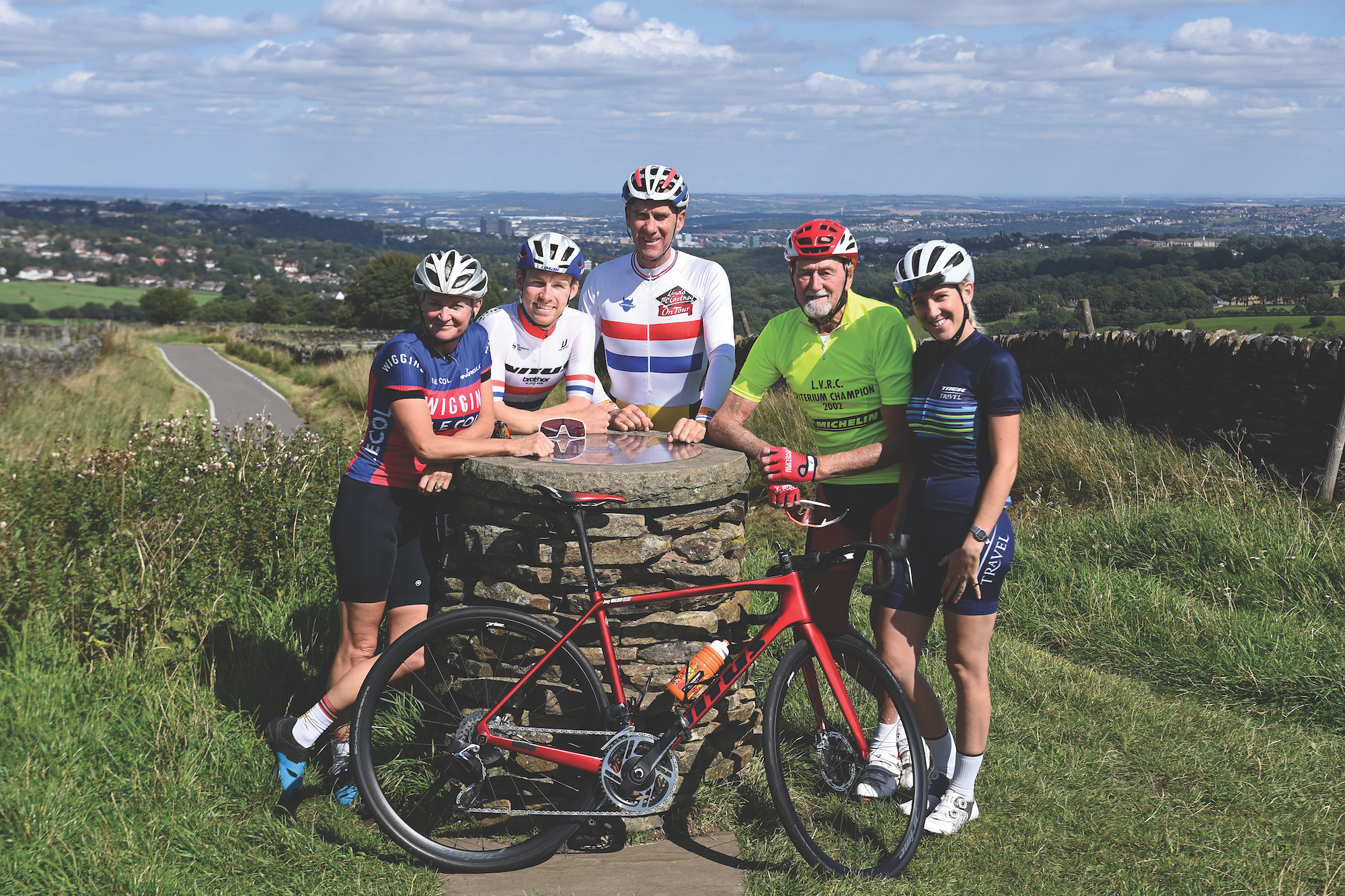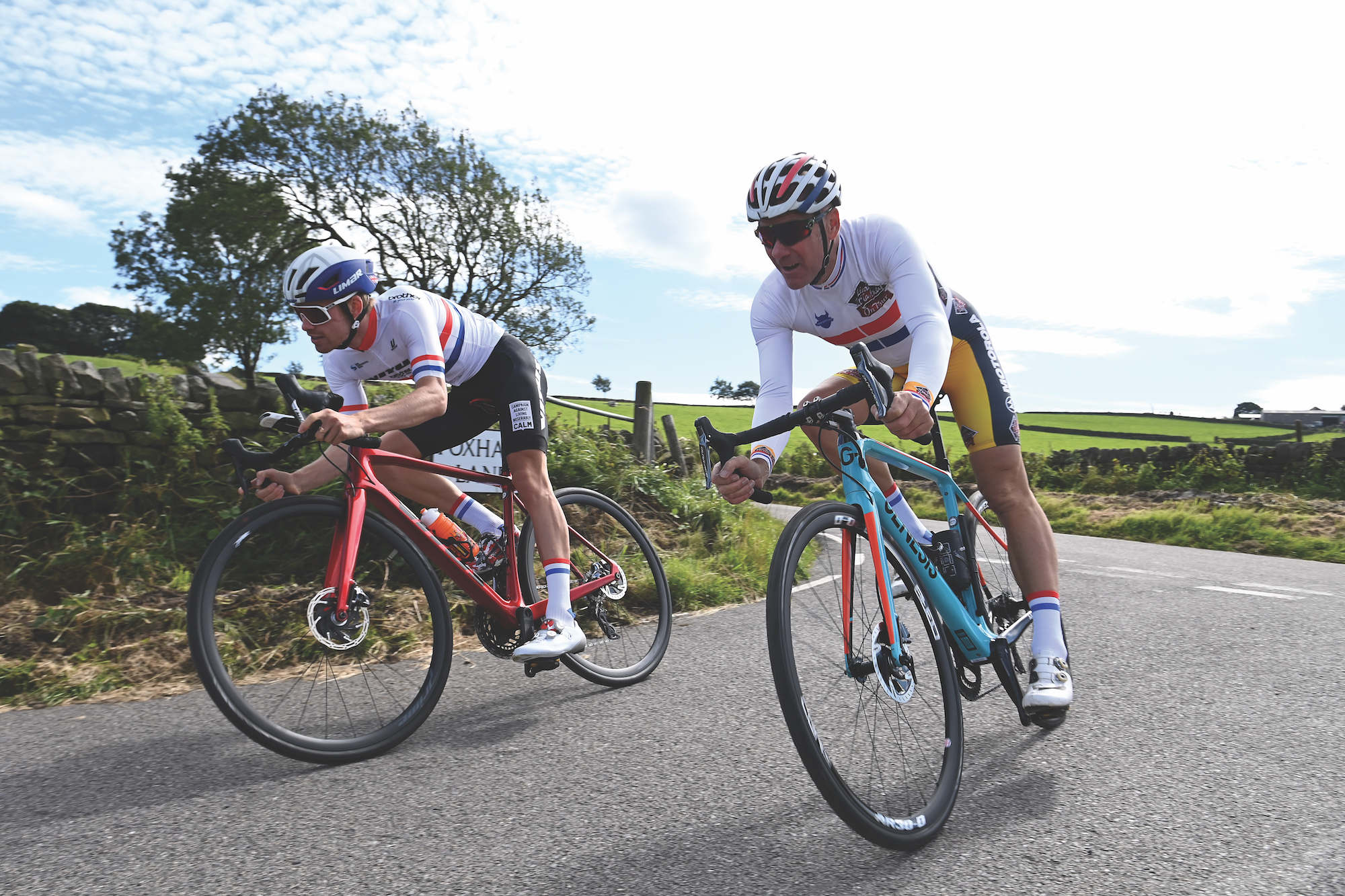What role does genetics play in sporting success?
What role does genetics play in sporting success? In the first in a new series interviewing high-achieving cycling families, Chris Marshall-Bell ponders nature versus nurture with the Walkers


(Andy Jones)
The latest race content, interviews, features, reviews and expert buying guides, direct to your inbox!
You are now subscribed
Your newsletter sign-up was successful
How important a role does genetics play in cycling? Success at professional level certainly seems to run in families, so evidently some talent is inherited. But how much? Does having a cyclist mum or dad make you more likely to excel because of the example they set, or because of the physical attributes they’ve passed on?
In the first of our new ‘In the genes?’ series aiming to investigate the importance of genetic inheritance in cycling, we speak with the Walkers – a family synonymous with British cycling glory. They’re a three-generation lineage of successful cyclists: in the Nineties, Chris was often cited as the most prolific winner on the domestic scene. Fast-forward to 2020, and the 55-year-old’s offspring Jessie and Joey have enjoyed success domestically and internationally, too.
Now a cycling guide for Trek Travel, 26-year-old Jessie was part of the winning GB squad at the 2015 World Championships. Her 22-year-old brother Joey, meanwhile, currently rides for Vitus-Brother UK, and last year became national criterium champion – a title both his father and his grandfather Syd Wilson have held.
Syd is the father of Jessie and Joey’s mum Lynn (Chris’s wife) – also a keen cyclist. He has just turned 92 and is a multiple age-record holder. We sat down – virtually of course – with all five of them.
Cycling Weekly: Has cycling always been ingrained in the Walkers?
Chris: There is no cycling link in my family, but my dad was a mountaineer, so being outside walking and being active is part of our family.
>>> Subscriptions deals for Cycling Weekly magazine
The latest race content, interviews, features, reviews and expert buying guides, direct to your inbox!
Lynn: It definitely is. I was racing up and down the promenade when I was 10. We had no option but to be a cyclist in a cycling family. While growing up, it was racing most weekends. For our six-week holidays, we packed the car and went to France – Dad raced, and we were on the campsite. Everything was cycling.
Syd: I didn’t start until I left the army aged 19, though. My brother raced in Germany and he got me into.
Jessie: Grandad only stopped racing this year because of coronavirus.
Syd: I’ve raced every year since I started.
Chris: I shouldn’t forget my nan, actually. She is 100 and is so sprightly. She was a cyclist as well, so maybe it is in the genes.
Lynn: I can’t sit still, I always have to be doing something, so I guess we ingrained it into Jessie and Joey that they have to do sport or some kind of exercise. Cycling came later.
Sid: The kids used to come round mine and we’d go around the estates and through the woods on their bikes. And then they just carried it on themselves.
Chris: They didn’t race until quite late, though. They always had small mountain bikes but there was no pressure to race. Joey started aged 13 and then Jessie was impressed by the amount of girls racing, so she started. We never pushed them; we let them enjoy it.
Jessie: I had no interest, really [at first]. When I was young, Dad was still racing, and we were riding as soon as we were walking, but we did other things.
Chris: We let them do other sports like rugby and cross-country running. We just wanted them to have a healthy lifestyle and to see that hard work pays off.
Jessie: I remember being at that awkward teenage age and thinking that cycling wasn’t cool. I was surprised that there were girly girls racing, people I’d be friends with – after that, I was hooked.

CW: Is cycling an obsession?
Jessie: We’re not a geeky cycling family. We race hard, we watch races, but we don’t discuss the science of it. We know when to switch off.
Chris: You’re right, Jessie, but we would all watch Milan-San Remo and we’d all be interested in who’s doing what and hearing what training they are doing. There was no pressure on you both – it just came naturally.
Joey: I’ve never felt pressure from you.
Chris: That’s because of your desire. You want to ride. I used to look at Syd for inspiration. He wants to get the 15-mile age record. He doesn’t need to but he wants to. It’s ingrained in his blood. You can’t force that on anyone. Jessie stepped away from pro cycling but she loves it more than ever, I’d say.
Jessie: It’s true, I do.
Chris: Lynn and I go out every day for pleasure as well. We can switch it off, but we would all really struggle to totally stop.
CW: Do you all have similar racing styles?
Joey: I’d say so, yeah.
Jessie: Joey is very similar to Dad; he can sprint and climb, but Dad has more aggression.
Chris: There are guys I raced with who have commented that both Jessie and Joey look good on a bike – that they corner really well, for example. So many people say ‘God, it’s just like watching you when you were younger’. I see it in their racing style.
Joey: We’ve all got similar styles. From youth level, we were told to enjoy the race but race hard, whereas some parents would say, ‘Sit in and wait for the sprint’. We’d never learned to do that; we got told to race our bikes hard.
Chris: Joey has a good sprint, similar to me. Jessie didn’t have the sprint, but Jessie almost won the Tour Series overall, and that was because she knew she didn’t have a good sprint so made sure she hit the front [at the right time].
Jessie: I was only one point off winning the Tour Series. I raced it hard.
Chris: If you’re a non-sprinter, there’s no point sitting on the fastest sprinter in the peloton. Jessie mastered that; she got stuck in, she was always on the attack. That’s the racing they do.
Joey: Dad used to say, ‘Would you rather win a sprint or win solo?’ Obviously we would all pick solo, that’s how we are.
Chris: Even though I was a sprinter, I’d never sit in and not be involved in the race, waiting for the line or last lap. I was the guy who was most aggressive. I wanted to be the guy who dropped everyone and finished on their own, and that was Jessie’s speciality. Joey’s best road wins have been like this too.
CW: What about training styles, are they similar too?
Joey: Oh, definitely. I’m old-school like Dad and Grandad.
Jessie: Grandad used to tell us stories about rubbing his legs with nettles before a time trial to make sure that it would distract from the pain of the time trial.
Joey: I’ve had coaches who’ve said I have to hold certain watts, and when I couldn’t do it, it took the enjoyment out of it.

Chris: You have to learn to feel your body. You can’t just look at the computer. You have to feel it in your heart rate. I never used data, and I know I would struggle with it, as Joey has.
CW: What about diet?
Chris: Coming from a cycling background, we had our diet nailed, and we passed that on to the kids. When I was a kid, I’d have Weetabix covered with sugar, but we knew that was bad. Our kids had it without sugar, and that became normal. We never had fizzy pop in the house. They would occasionally have Coca-Cola when we were out, but that was a treat.
Jessie: We had a deprived childhood, right!
>>> Cycling Weekly is available on your Smart phone, tablet and desktop
Chris: But I would tell you it was empty calories, and that it wouldn’t do you any good.
Joey: To be fair, I did have Nutella sandwiches every day throughout school.
Lynn: Yeah, but that’s all you’d eat!
Chris: We didn’t have that much rubbish food in the house.
CW: Has the Walker name helped you?
Jessie: At my very first Tour Series race, I was signing on by myself, feeling way out of my depth when [race organiser] Mick Bennett said, ‘Oh, you must be Chris’s daughter – you must be good, then.’ It sticks in my mind because I remember thinking, ‘Well, I’m not Dad – this is my first Tour Series’. I then got lapped a few times.
Chris: You made a name for yourself as well. You went to two World Championships including the one that Lizzie [Deignan] won.
Jessie: I don’t think I’ve ever been in your shadow, and I’ve not felt the pressure. People notice the name in a positive way.
Joey: I remember an incident at the Tour Series, too. John Herety [former manager of JLT-Condor] was there and he said he was keeping an eye on me because I was Chris’s son. He was being serious, and you wouldn’t have got that being a junior without the Walker name. It was a privilege, really. I’ve never seen the name as a disadvantage.
CW: What’s been the biggest advantage of being a Walker?
Jessie: Tactics.
Joey: I agree.
Jessie: Dad told us what training to do, but the main benefit of having him as an ex-pro dad was the tactics. You can’t buy that sort of thing.
Joey: He made mistakes as a pro and would tell us about them before we made them. He’d say what he did wrong so that we wouldn’t repeat it.
Chris: A lot of the advice I was trying to give was through legitimate mistakes I made in my career. That gave them confidence to try the plan, and most times it came out well.
Jessie: There are so many coaches who have all the knowledge you need; you can watch all the videos, learn all about training, but having Dad as a mentor, telling us what to do, was the biggest advantage.
This feature originally appeared in the print edition of Cycling Weekly, on sale in newsagents and supermarkets, priced £3.25.
A freelance sports journalist and podcaster, you'll mostly find Chris's byline attached to news scoops, profile interviews and long reads across a variety of different publications. He has been writing regularly for Cycling Weekly since 2013. In 2024 he released a seven-part podcast documentary, Ghost in the Machine, about motor doping in cycling.
Previously a ski, hiking and cycling guide in the Canadian Rockies and Spanish Pyrenees, he almost certainly holds the record for the most number of interviews conducted from snowy mountains. He lives in Valencia, Spain.
